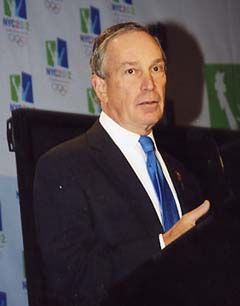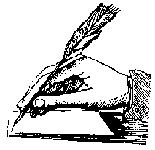March 17, 2013 --
1. Reichism -- No Political Freedom Permitted
The First Amendment states, in part, that "Congress shall make no law "abridging ...the right of the people peaceably to assemble, and to petition the Government for a redress of grievances." In an anti-Tea Party diatribe, Robert Reich, a former labor secretary for President Clinton, apparently has concluded that persons with conservative grievances towards government are dangerous conspirators plotting "to undermine the government of the United States." This conclusion suggests that Mr. Reich advocates political control - perhaps better known as "tyranny."
LPR senses that Mr. Reich would prefer that we dispense with elections, because an election makes possible the establishment of a government that has depart from the governing mindset of its precedessor. Consider,for example, the election of Barack Obama in 2008. Did he not assert his intention to transform the nation? A conservative, per the Reich vision, should have warned that an Obama administration would not only seek to dismember the government of its predecessor, but the Constitution itself, along with our founding legacy?
As usual, Mr. Reich displays the leftist penchant for describing the leftist mindset with the accusatory terms it aims at conservatives. And so,borrowing from Reich's concluding words, he lets the public see leftists for who they are: political zealots intent on transforming the nation by dictating the terms of public debate with the aim of holding hostage a formerly free people.
2. Bloomberg, as Noun and Verb
It is probably too soon for New York City residents to cry out "free atlLast," now that a New York judge threw out Mayor Michael R. Bloomberg's ban to control consumption of soda in New York City
The mayor's term will not end for eight and a half months. But the sense of a communal sigh of relief was palpable, with word, March 11, that a court stepped in to prevent the Bloomberg soda
edict from taking effect. LPR expected that if the ban went into effect, police checkpoints would be set up at the city line, with "portion control" enforcement officials stopping cars entering New York City from Westchester, from Long Island, and from New Jersey to make sure the vehicles were not carrying food contraband into the city.
|
A New York Times article on the ban on the Mayor's ban, March 12, mentioned that Mr. Bloomberg has retained public relations advisers "to shape the public perception of the Bloomberg era." LPR would include the noun and verb "bloomberg" are part of the mayor's legacy. For LPR. a 'bloomberg"
is a very wealthy individual who is elected to public office and, thereafter, imposes his likes and dislikes on the public by means of rules, regulations, ordinances, laws, whose violation will subject the offending citizen to heavy penalties. As verb: "to bloomberg" is to impose "arbitrary and capricious" rules, regulations, ordinances, laws that reflect the whim of the rule-giver and provide heavy penalties for their violation.
LPR would note its perception of the Bloomberg era as a time when, among other acts of mayoral omission, the public roadways were so unmaintained as to be comparable to the rutted, and pot-holed thoroughfares of a poor city, a very poor city, indeed, and also a time when cars, with pets inside, were towed to city marshal pounds, and unmarked police cars were sent out to track down people not having their seat belts buckled.
 |
| LPR file photo of Mayor Bloomberg |

|
|



